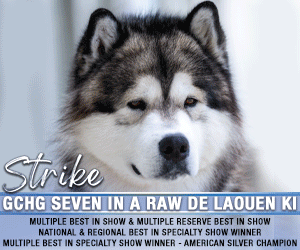Illinois: Chicago Proposal Could Undermine Hobby Breeders and Pet Store Consumer Protections
 A proposal has been introduced in the Chicago City Council that seeks to stop fraudulent rescues from sourcing to pet stores. In addition to addressing this issue, it also would make numerous changes to city pet animal ordinances, including requiring licensing of hobby breeders as animal care facilities, and removing important consumer protection and information provisions related to pets for sale at pet stores.
A proposal has been introduced in the Chicago City Council that seeks to stop fraudulent rescues from sourcing to pet stores. In addition to addressing this issue, it also would make numerous changes to city pet animal ordinances, including requiring licensing of hobby breeders as animal care facilities, and removing important consumer protection and information provisions related to pets for sale at pet stores.
Those who reside or participate in breed rescue activities in Chicago are encouraged to reach out to the City Council’s Committee on Health and Human Relations.
Summary:
Current Chicago code prohibits pet stores from sourcing from anywhere except a publicly-run shelter, pound kennel or animal control facility, or a humane society or rescue organization. Proposed Ordinance O2020-2827 is an attempt to stop those groups and breeders that falsely identify themselves as rescues from sourcing to pet stores in the city. AKC supports this goal and believes this practice must be stopped.
We are extremely concerned, however, with portions of the proposal that could have harmful unintended consequences, including:
- Burdensome impact on hobby and home-based breeders – Currently, city code exempts those with fewer than 5 intact female dogs from the definition of “animal care facility”. This proposal would remove this exemption and further define “engaged in the business of breeding” as anyone who owns a female dog “that reproduces”. This would require hobbyists and home-based breeders to obtain an animal care facility license. While some requirements of this license are perfectly reasonable, some are not practical for those with one litter of puppies in their home. For example, under current law, a licensee could be required to have a minimum of two staff on site if they allow dogs to “commingle”. It is unclear how this would be enforced.
- Impact on consumer protection – The underlying code is a significant attack on consumer protection, as it removes the ability for pet store customers to buy a dog from a legal, regulated source. Additionally, it would limit the ability of future pet owners to obtain the type or breed of dog they wish. There are residents in Chicago who may not have access to a local breeder of the breed they’d like to acquire and may not want to be put on a long waiting list, etc. Instead, they may wish to purchase a dog from a regulated, licensed pet store where they can still get the consumer protections, the health history, and ongoing professional relationships they desire. It is this unfortunate reality that has led some pet stores to choose engage in the practice of working with fraudulent rescues in order to secure animals from known sources and backgrounds.
This proposal repeals the requirement that pet stores must still provide certain information about the animals to their customers. It no longer requires pet stores to provide health and other important information about a specific animal. These existing provisions are essential because they help consumers make a well-informed decision and determine if the pet is a good fit for their family and lifestyle – which ultimately ensure a lower rate of dogs entering shelters and rescues, and ensure the animals get the home and care they need and deserve. - Implications for breed rescue – For the purposes of sourcing to pet stores in the city, the proposal clarifies that a rescue does not include a “commercial producer” (defined as anyone who breeds dogs or cats for the purpose of selling the offspring), anyone who obtains dogs from a commercial producer, anyone who facilitates a sale from a commercial producer, or has “common personnel” with a commercial producer – including board members, employees, or managers. Rescues may also not be an affiliated business with a “commercial producer”.
Again, AKC understands the concern with “retail rescue”. However, there is also a concern that the proposal implies that breeders should not be involved in rescue work. This undermines the dedicated volunteer efforts of breed experts and breeders who are part of AKC clubs and who regularly help dogs in need get appropriate assessments, care, and rehoming.
What You Can Do:
The proposed ordinance has been assigned to the council’s Committee on Health and Human Relations. While the next committee hearing is scheduled for June 4, no agenda has been posted at this time.
Those who wish to comment on this proposal are encouraged to do the following:
- Contact the sponsor, Alderman Brian Hopkins, at Ward02@cityofchicago.org
- Contact the committee at Committeeonhealthandhumanrelations@cityofchicago.org
AKC Government Relations and the Illinois Federation of Dog Clubs and Owners are closely monitoring this proposal. For more information, contact AKC GR at doglaw@akc.org.
Short URL: https://caninechronicle.com/?p=184711
Comments are closed












